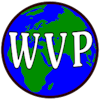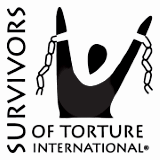Michael Connolly Miskwish discusses Kumeyaay Cosmology in this short and intimate lecture.
Kumeyaay cosmology was traditionally intertwined with ceremonies, harvest & hunts, burning schedules and the acquisition of spiritual power. Personal conduct was subject to cosmological constraints and rewards. Cosmology was so important that Spanish priests and subsequent U.S. government agents worked hard to repress and expunge the beliefs from Kumeyaay society. This talk provides a partial glimpse of the Kumeyaay cosmology with worldview, observatories, constellations and stories.
Michael Connolly Miskwish is a member of the Campo Kumeyaay Nation. In 1990, he helped establish and directed one of the first tribal Environmental Protection Agencies in the U.S. Michael researched and implemented traditional environmental practices in contemporary land and resource management. He worked on environmental policy for the National Congress of American Indians, National Tribal Environmental Council, the Good Neighbor Environmental Board and several US EPA advisory committees.
Admission/Cost: FREE but please Register
Location: Streaming Online
Thursday, November 12 - 1:00 PM to 2:00 PM
Kumeyaay cosmology was traditionally intertwined with ceremonies, harvest & hunts, burning schedules and the acquisition of spiritual power. Personal conduct was subject to cosmological constraints and rewards. Cosmology was so important that Spanish priests and subsequent U.S. government agents worked hard to repress and expunge the beliefs from Kumeyaay society. This talk provides a partial glimpse of the Kumeyaay cosmology with worldview, observatories, constellations and stories.
Michael Connolly Miskwish is a member of the Campo Kumeyaay Nation. In 1990, he helped establish and directed one of the first tribal Environmental Protection Agencies in the U.S. Michael researched and implemented traditional environmental practices in contemporary land and resource management. He worked on environmental policy for the National Congress of American Indians, National Tribal Environmental Council, the Good Neighbor Environmental Board and several US EPA advisory committees.
Admission/Cost: FREE but please Register
Location: Streaming Online
Thursday, November 12 - 1:00 PM to 2:00 PM








